With the Ravens’ season coming to an abrupt end after the divisional-round playoff loss to the Buffalo Bills, a lot of players are facing an uncertain future as they step into free agency.
As they grappled with the loss in the visiting locker room Sunday night in Orchard Park, New York, players were too immersed in their disappointment to look forward.
“Who knows?” left tackle Ronnie Stanley replied when asked about the timeline for thinking about next steps. “Whenever I feel, I guess, over this one. This one is going to hurt for a while.”
By locker room clean-out the next day, feelings had settled. Although some players expressed interest in remaining Ravens, others lacked the clarity of their future to commit.
The Baltimore Banner thanks its sponsors. Become one.
No one will know for certain until March. The window for negotiating begins March 10. It goes until 4 p.m. March 12, which is when 2024 contracts expire and new contracts can be signed.
The Ravens have 21 expiring contracts. Seven belong to players who started this season. Six are for regular contributors, including three on special teams. Three are for depth players, four are for players on injured reserve and one is for a player who was cut.
Read More
The pending free agents are scattered across position groups, but once again the offensive line will be hit the hardest with two starters and two depth players at the end of their deals. The wide receivers will lose an occasional starter along with a rotational player and two special teams players. Four cornerbacks will also become free agents, but only one was a starter and two were on injured reserve.
Here are breakdowns of the five biggest free agents, followed by a list of all of the Ravens’ free agents:
1. LT Ronnie Stanley
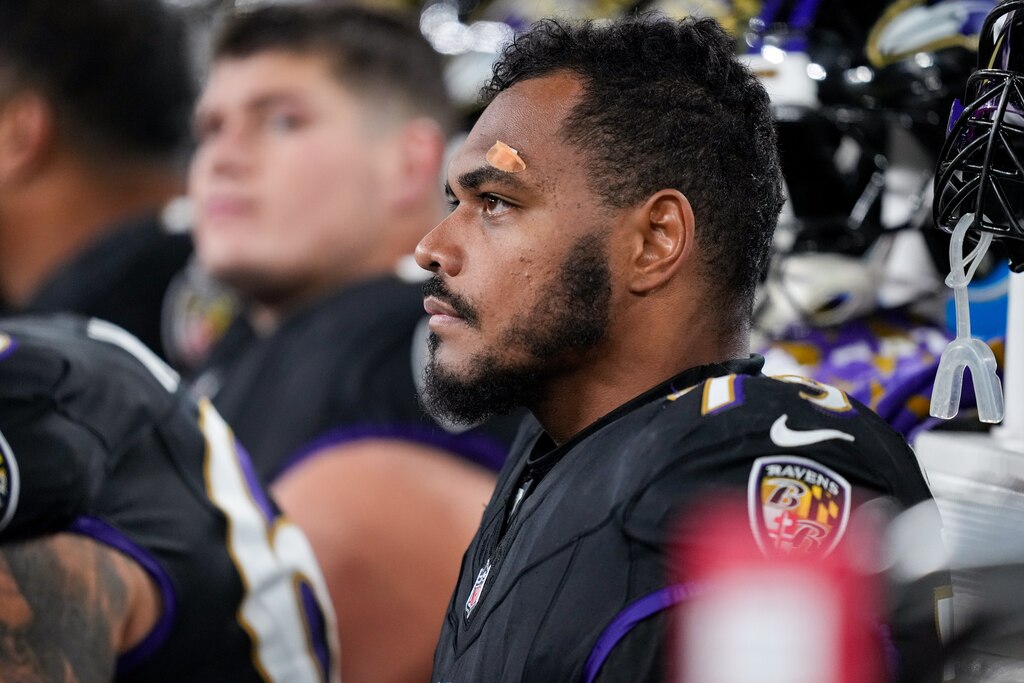
Last offseason, following a 2023 marred by injury, Stanley agreed to restructure his contract, which was set to end ahead of the 2026 season. Stanley’s restructure turned 2025 into a void year with a cap hit of $8,168,250, according to Spotrac (read more on the restructured contract here).
The Baltimore Banner thanks its sponsors. Become one.
Stanley’s gamble on his health and his ability to return to form paid off. He played every game this season, earning a bonus for every game, and his performance means some team is going to pay him well. Pro Football Focus graded Stanley as an above-average blocker (70.7) this season, and he excelled in pass blocking (80.9). He’s 12th in ESPN’s pass block win rate among tackles, and he was named a Pro Bowl alternate. He was named the replacement for Laramy Tunsil of the Houston Texans on Thursday.
Stanley will turn 31 in March, but he seems to be improving now that he’s had a fully healthy season. However, his injury history is significant, and general manager Eric DeCosta expressed at the end-of-season press conference that he believes rookie Roger Rosengarten could play right or left tackle.
Right now, PFF projects Stanley could sign a two-year contract worth $20 million per year. If he signs with a different team, the Ravens will not get a compensatory pick as a result of his contract restructure.
2. LG Patrick Mekari
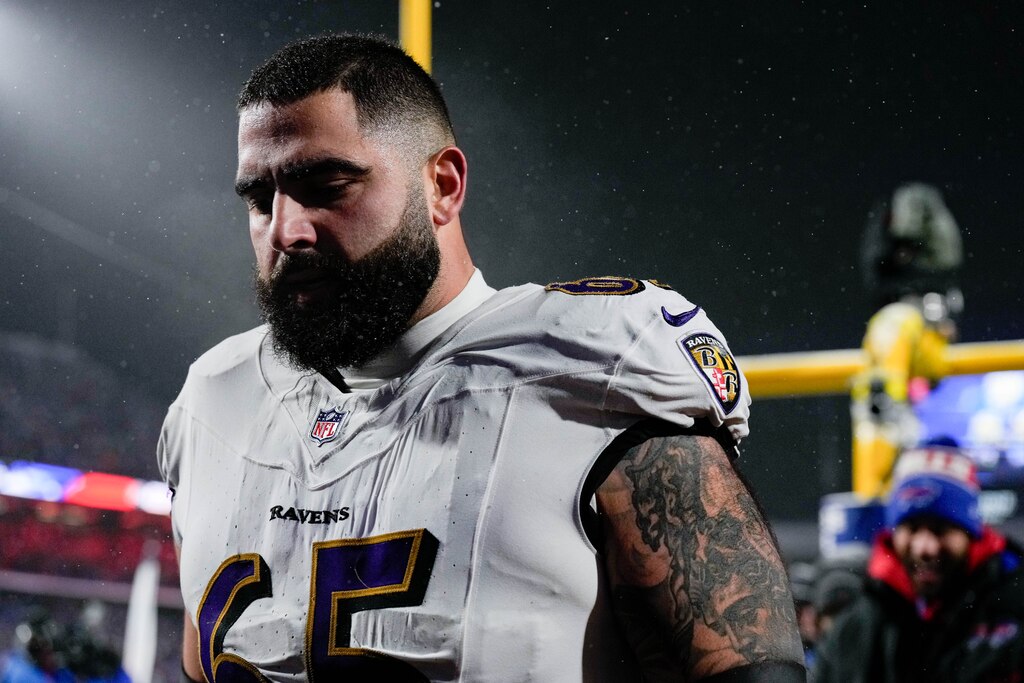
The Ravens might have to rebuild the entire left side of their offensive line (although, that’s less of a challenge than last year, when they had to build the right side plus find a left guard). Mekari, whom the Ravens have previously preferred to use as a versatile sixth man who can plug in anywhere, started every game for the first time in his career. He started at right tackle before second-round draft pick Roger Rosengarten took over, and then he slid to left guard, replacing Andrew Vorhees.
Although Mekari struggled with penalties, finishing with 13, he graded out well as a pass blocker (70.3), according to PFF, allowing only one sack. Although his run blocking grade was low (58.1), he helped the Ravens to a league-leading 5.8 yards per carry and 3,189 regular-season rushing yards. He and Stanley are the most veteran linemen on the team. Mekari will turn 28 in August. PFF projects he will sign a three-year contract worth $8.68 million a year.
The Baltimore Banner thanks its sponsors. Become one.
At the end-of-season press conference, DeCosta provided little clarity on either veteran lineman’s future.
“We are aware that we have some guys whose contracts are up, and we’ll look at that and certainly have some discussions with players,” DeCosta said. “We’ll look at potentially bringing back our guys; we’ll look at the draft; we’ll look at free agency; we’ll overturn every rock to find as many good offensive linemen as we can, and I think we have some good young players on the team — they’ve shown that.”
3. FB Patrick Ricard
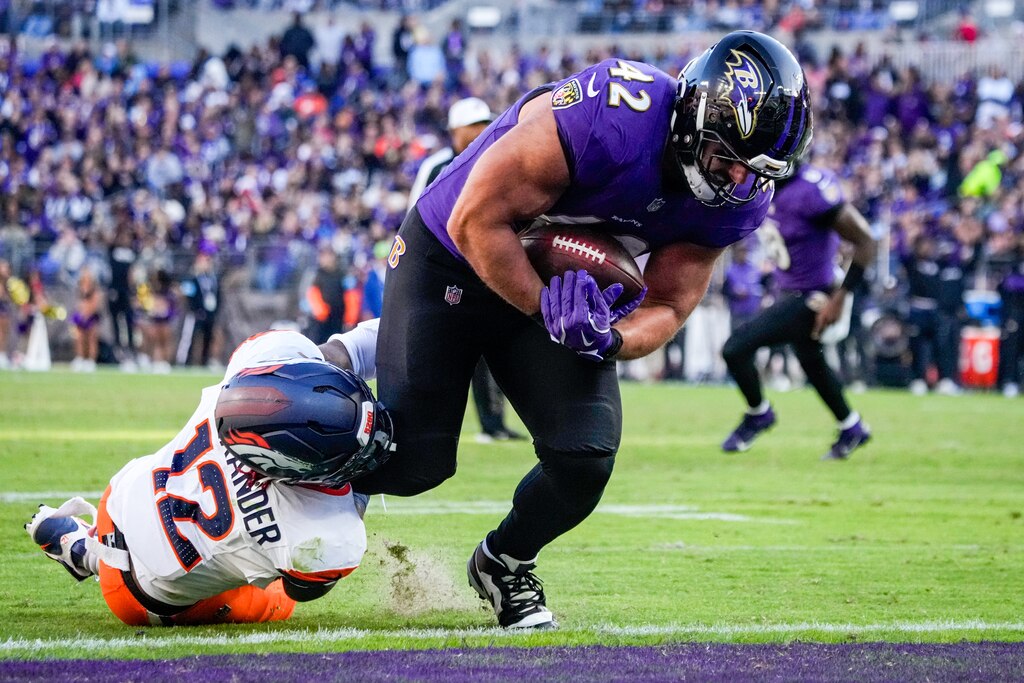
After being named to his fifth Pro Bowl and his second straight All-Pro team, Ricard established his value to this run-heavy team. Although he plays a niche role, he was critical to helping the Ravens power downfield — he was on the field for 15 of Derrick Henry’s 16 touchdowns in the regular season.
He played an important role as a pass blocker, especially considering the youth along the line, and graded out at 65.2 in pass blocking, according to PFF. Ricard will turn 31 in May, but he’s remained healthy enough to play every game for the past three seasons.
Henry called Ricard an unsung hero, which may play to the Ravens’ advantage if they want to keep him. Ricard is not on PFF’s list of top free agents.
The Baltimore Banner thanks its sponsors. Become one.
“I want to stay here,” Ricard said. “I want to be here. I want to retire here. We’ll see what happens when the time comes.”
“He epitomizes everything that we’re all about,” DeCosta said. “And he’s another undrafted guy who just became — in my opinion — the best at his position. So, we’ll have those discussions. ... If we can get him signed — and I would say that would be the goal.”
4. CB Brandon Stephens
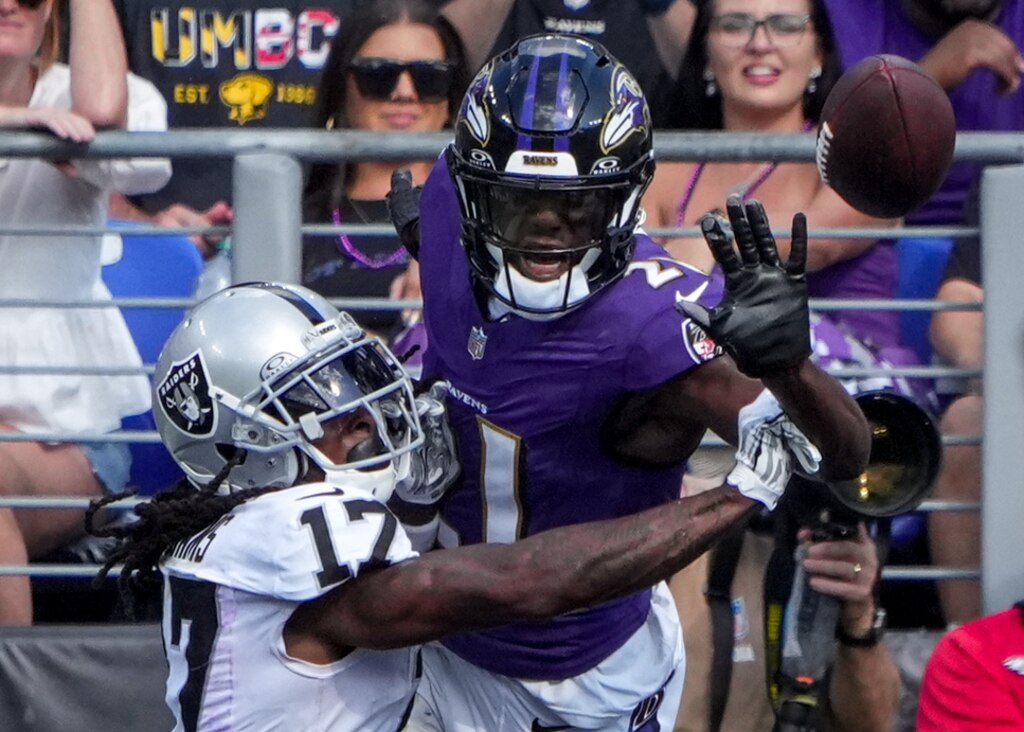
A 2021 third-round pick, Stephens last season became a critical part of the Ravens’ standout pass defense. He established himself as a shutdown cornerback and finished with a 65.5 PFF grade in coverage.
And then he hit 2024, his contract year. Stephens did not do himself many favors. Through the beginning of the season, opponents’ top receivers beat him with perfect catches. But the Ravens said he was doing everything right and was the unlucky victim of perfectly placed throws and outstanding catches. He was sticky in coverage, but after a short span of improvement as he played lesser opponents, he regressed. He finished with a 50.7 grade in coverage.
The Ravens stuck with Stephens, starting him in every game. He also won’t be too expensive if they give him another chance. It will depend if they think this season or 2023 was the fluke. They drafted two cornerbacks in 2024, but they will also be losing four to free agency. DeCosta did not commit either way.
The Baltimore Banner thanks its sponsors. Become one.
“He’s grown a lot, and he’s been a good player for us over the years,” DeCosta said. “We’ll have to see what happens with him. He’s probably going to have a chance to test the market and see what his value is, but he’s helped us win a lot of games over the last couple of years.”
5. OLB/ILB Malik Harrison
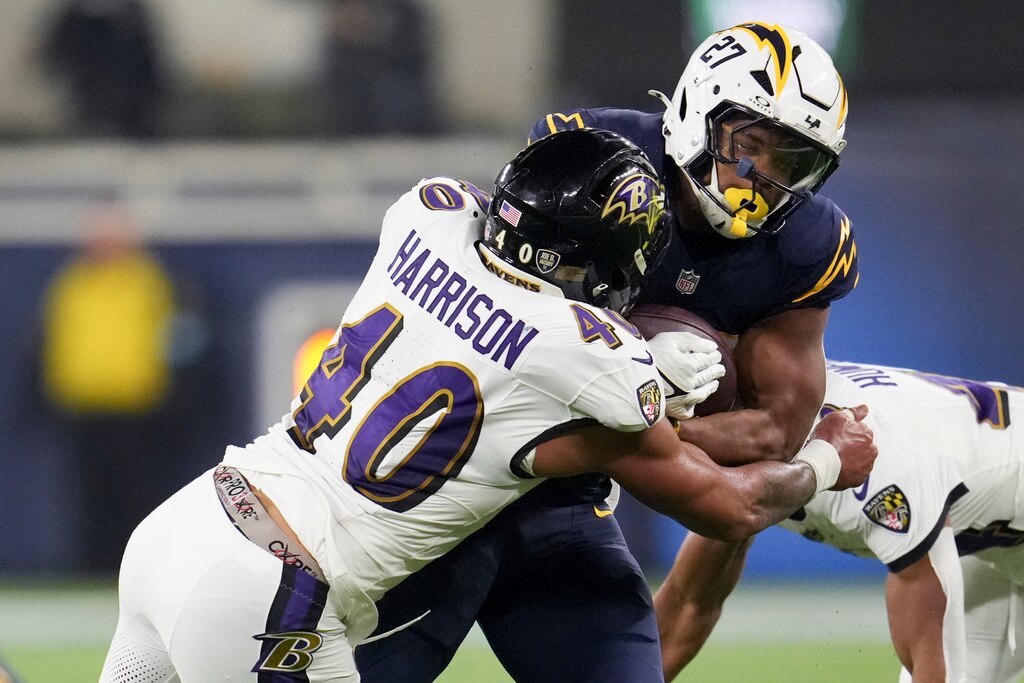
Harrison was quietly dependable through 2023, leading the Ravens to bring him back on a one-year deal. His 2024 season was much quieter. It started on a rocky note as his lack of speed got exposed by Kansas City, but then it peaked when he took command against the Los Angeles Chargers and finished with 13 tackles.
The Ravens relied on his ability to play inside and outside linebacker. He’s solid in the run game, and he improved as a pass rusher, recording his first two career sacks. Although he is not quite a starter at either inside or outside linebacker, he is versatile. Harrison also played an important role in filling the gap when the Ravens decided Trenton Simpson is not ready to be a starting linebacker. He and Chris Board rotated in next to Roquan Smith.
6. S Ar’Darius Washington*
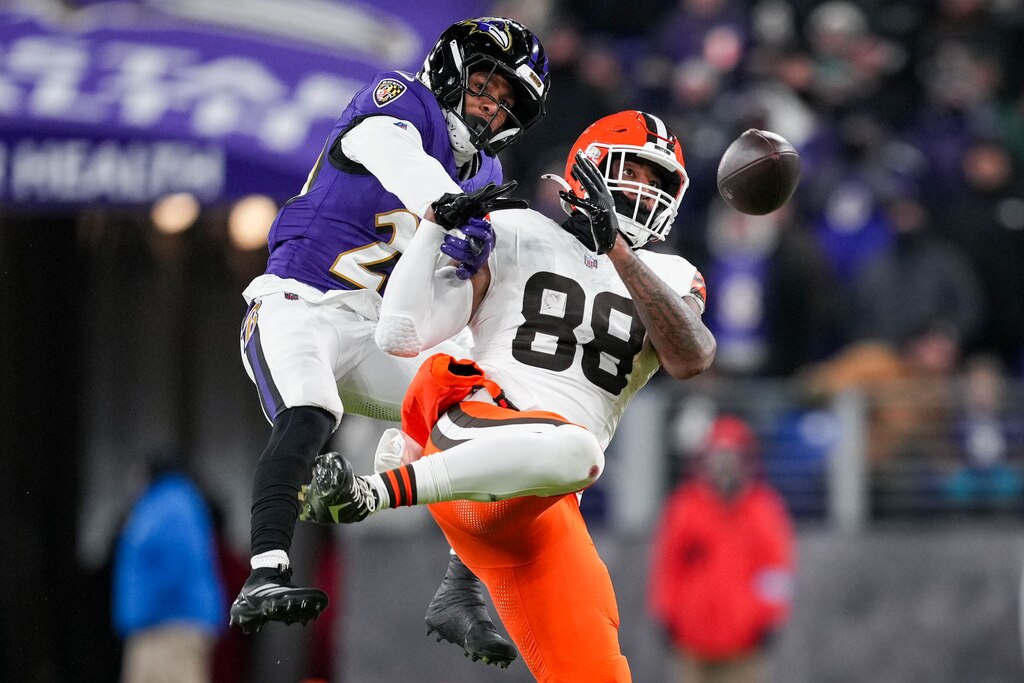
This one comes with an asterisk because, unlike the others, Washington becomes a restricted free agent March 12. This means the Ravens have the right to offer him first, and they also have the right to match offers from other teams.
Washington was an undrafted rookie who dealt with injuries through his first three seasons and bounced up and down from the practice squad. He made the team out of camp, but he played a limited role to start the year. However, he made the most of every opportunity, and when the Ravens switched to Washington and Kyle Hamilton as the safety duo, the defense saw a huge turnaround. He is small, but he plays with an aggressive, hard-hitting mentality that fits the Ravens’ standard. DeCosta indicated that the Ravens will do what they can to keep him.
The Baltimore Banner thanks its sponsors. Become one.
“Great story,” DeCosta said. “Just another one of these undrafted guys over the years that we’ve had who has developed into being a really good football player. We’re proud of him. He’s going to be a restricted free agent this year for us, and we’re fortunate that we have him back again next year.”
7-21:
- WR Nelson Agholor: The veteran in a young receiving corps, Agholor had 14 catches for 231 yards and two touchdowns. He had a cap hit of $2,135,000 this year.
- DE Brent Urban: Also a veteran, Urban was a steady part of the defensive line rotation. He helped the Ravens to be the top run defense in the league, and he brought some fun with his pass defense dance. His cap hit was $1,152,500.
- WR Tylan Wallace: After gaining attention for his game-winning punt return for a touchdown last season, Wallace eventually lost the punt return job this season. However, he played a greater role in the offense than he ever had before, making 11 catches for 193 yards. His cap hit was $1,226,341.
- CB Tre’Davious White: Seemingly the smaller trade at the deadline, White ended up playing a much bigger role than wide receiver Diontae Johnson. He helped bolster the pass defense through Stephens’ struggles. He went from a 49.3 coverage grade with the Los Angeles Rams to a 61.9 with the Ravens. His cap hit was $1,220,588.
- OL Josh Jones: An offseason signing, Jones did not end up competing for a starting position along the line. However, he contributed on special teams and came in when the Ravens wanted to run bigger packages. His cap hit was $1.79 million.
- OL Ben Cleveland: Cleveland quickly moved down the depth chart during the training camp battles for the guard spots. He was briefly the backup center while Tyler Linderbaum was hurt, but Linderbaum returned for the regular season. Cleveland occasionally played as a sixth lineman. His cap hit was $1,500,461.
- QB Josh Johnson: Although the Ravens drafted a quarterback, John Harbaugh named Johnson the backup before the draft even happened. The wisdom of that decision was never truly tested because Lamar Jackson made it through the season healthy. However, as a nine-year veteran, Johnson adds experience that rookie Devin Leary and Jackson could draw on. His cap hit was $1,152,500.
- LB Chris Board: A major special teams contributor, Board ended up as a role player on the defense as well. Once the Ravens cut back Simpson’s playing time, Board filled in, and he did well enough that opponents did not expose the middle of the field as badly as one might have expected. His cap hit was $1,152,500.
- LB Kristian Welch: Another major special teams contributor, Welch played over 80% of those snaps from Week 10 on. His cap hit was $383,056.
- DB Daryl Worley: A special teams contributor and secondary depth piece last season, Worley signed late with the Ravens but was cut out of training camp. However, he still impacted the cap with $328,332. He ended up in Tennessee.
- WR Steven Sims: A late addition, Sims played a significant role for the Ravens. After they claimed him off waivers in Week 17, Sims took over as the punt returner. Then Zay Flowers was injured in Week 18, and Sims helped fill the gap during the playoffs. His cap hit was $121,208.
- WR Deonte Harty: Brought in for his skills as a returner, Harty barely got to show off. He was missing for much of training camp, and then he went on injured reserve, where he finished the season. His cap hit was $1,152,500.
- CB Trayvon Mullen: Mullen spent the season on injured reserve. His cap hit was $520,000.
- CB Christian Matthew: Matthew also spent the season on injured reserve and also had a cap hit of $520,000.
- RB Owen Wright: With Keaton Mitchell and rookie Rasheen Ali injured through much of training camp, Wright established himself as a viable third running back option. However, he was injured in the final preseason game and spent the season on injured reserve. His cap hit was $470,000.





Comments
Welcome to The Banner's subscriber-only commenting community. Please review our community guidelines.